Session 2 of the Singapore-IRENA High-Level Forum focused on what’s needed to foster green financing leadership. With that in mind, panellists spoke on the financing challenges, opportunities, and strategies to attain this goal. Roy Tay reports.
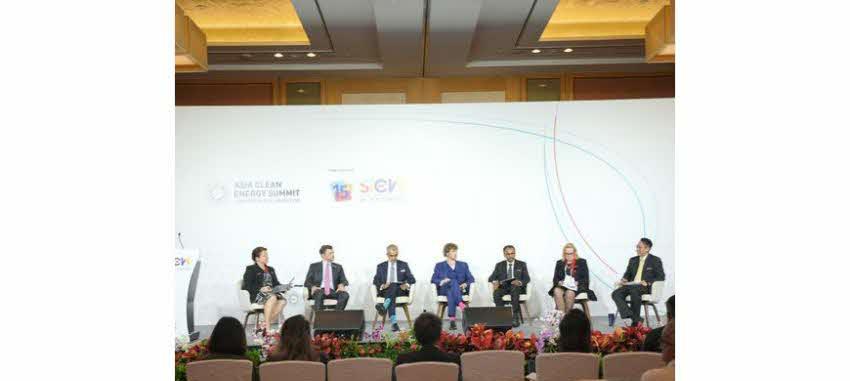
Keynote speaker H.E. Dato Lim Jock Hoi, Secretary-General of ASEAN, started by providing an overview of the second ASEAN Renewable Energy Outlook — highlighting the transition towards regional energy on the deployment of renewables and emerging low carbon technologies. While ASEAN aims to achieve its 2025 energy targets, he stated that ASEAN has made significant progress in deploying renewable power capacity and is willing to support financing for clean energy projects.
H.E. Dato Lim also emphasised the need to mobilise green financing and investment for clean energy projects in the region. He shared that ASEAN is committed to working with key partners like IRENA in tapping the renewable sources available in the region. This is to achieve a low carbon future through the alignment of its member states’ strategies towards decarbonisation.
Shifting mindsets – traditional to green financing
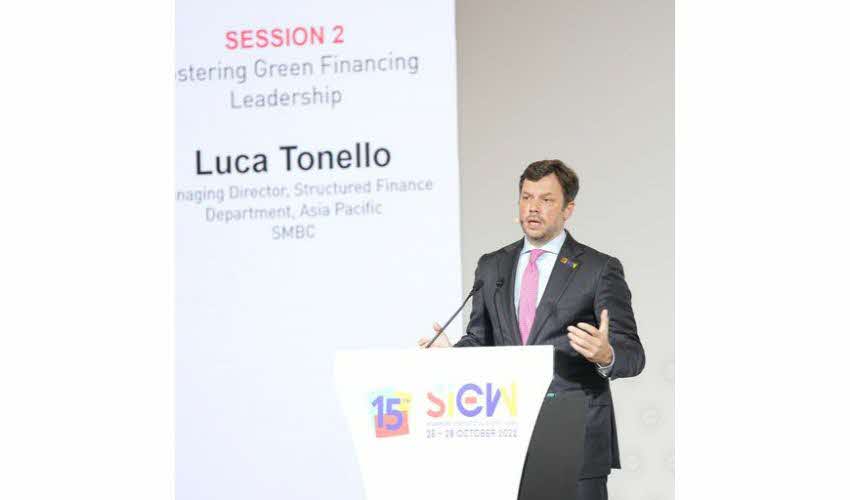
Keynote speaker Luca Tonello, Managing Director, Structured Finance Department, APAC SMBC, started by highlighting that the energy issues are becoming “everyone’s business”. Forums such as Singapore-IRENA provide a platform for high-level debates on energy matters.
Mr Tonello highlighted the importance of connectivity because often most organisations develop projects in isolation, which limits the success rate of such projects. In order to improve connectivity, he explained that we must create a new commodity in the market and organise the value chain which involves the buyers, transporters, and producers coming together to make it viable.
Apart from the need to raise capital, Mr Tonello called on leaders to have a long-term view regarding the cost, efficiency, and penetration of green technology. He cited the example of how the Government should take the initiative in setting the right direction towards decarbonisation before capital funding can start flowing in. This will result in a reduction of the cost of technologies and promotes innovation.
Mr Tonello concluded that there are still risks to developing nascent technology, along with the inherent risks that come with such projects. He reiterated the need for better interconnectivity to address these challenges.
Key challenges and solutions to unlock opportunities for green financing
Expert speakers rounded up the discussion by highlighting the key challenges and solutions needed to unlock opportunities for green financing and scale up green energy investments in the region. Ms Laura Ashton, Co-Founder and Chief Executive Officer, Low Carbon Advisors, was moderating the panel discussion.
Factors to drive energy transition and foster green financing

When asked about what the key factors are to drive energy transition and foster green financing, Mr Christian Krebs, Head of Investment, Head of Investment and Development, APAC, Aquila Capital, highlighted the importance of education. He elaborated that currently everyone is competing over the same talent and emphasised the urgency to build up the knowledge and competencies of the workforce for future generations to drive the energy transition further.
Mr Tonello echoed that it is crucial for a change in mindset and motivation to switch from traditional financing to green financing in the region.
Development of supply chain to kickstart projects
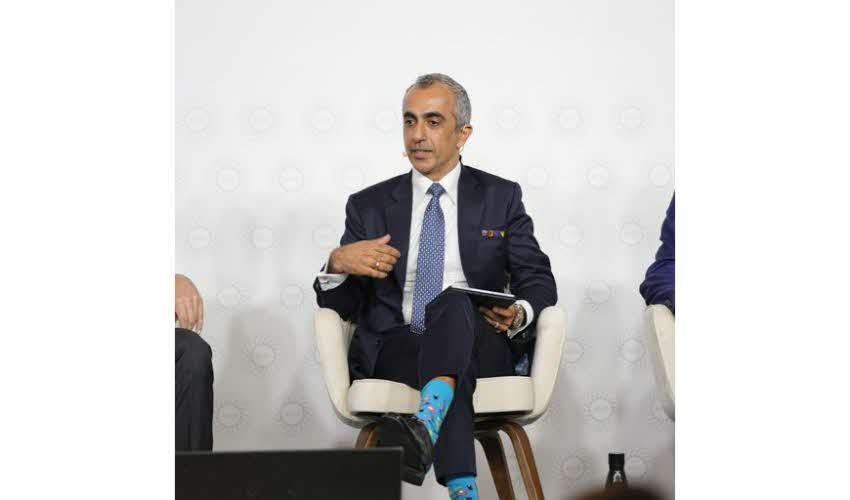
Mr Kiran Raj, Chief Financial Officer, Sun Cable, added the importance of having a supply chain with more investments to be developed and stabilised before the project starts running. He shared that different skill sets are involved in such projects, which would require more investments.
Capacity building to handle challenges
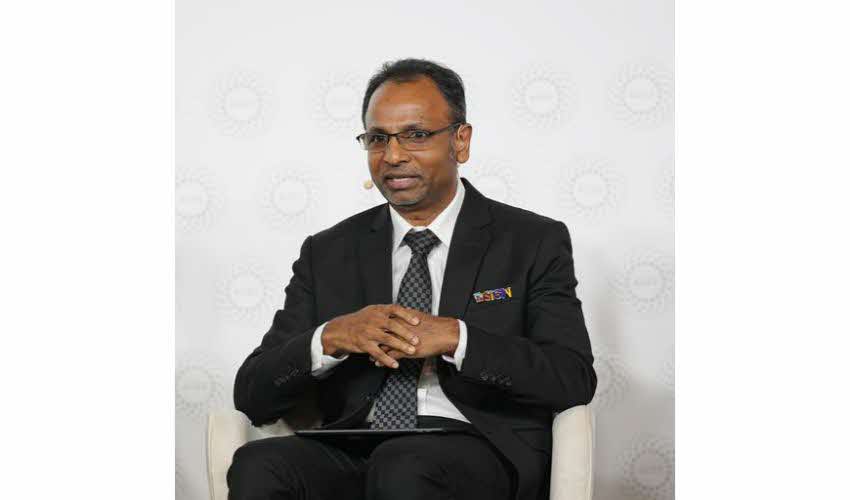
Lavan Thiru, Executive Director, Infrastructure Asia, responded by highlighting the importance for each region, especially emerging countries, to look at its capacity to build the infrastructures needed to undertake challenging projects on renewable matters. Mr Thiru cited having project development funds as a means to instill confidence in bringing the larger public community together.
Being appealing to investors
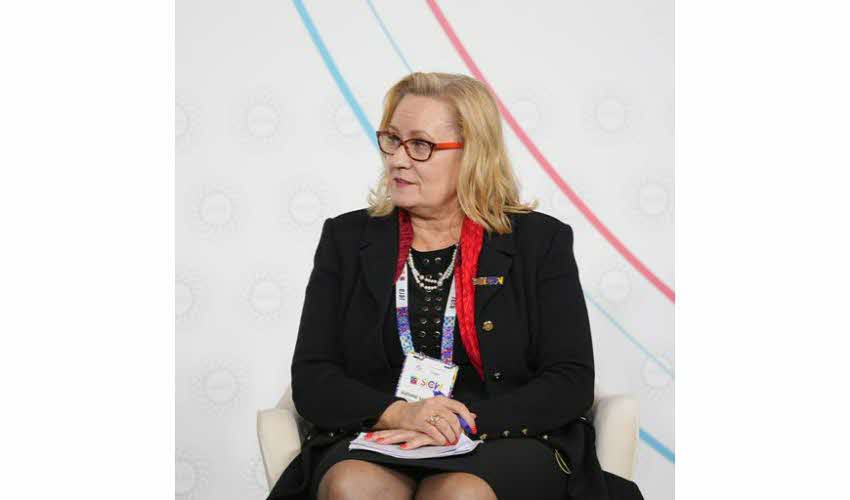
Ms Suzanne Gaboury, Director General for Private Sector Operations Department, ADB, said that it is about the investors’ risk appetite. Investors tend to shy away from innovative solutions, and it has been proven that the focus has typically been on “sexy” technologies. Ms Gaboury observed that innovations have picked up pace post-COVID-19 and that ADB has started green bonds within the region. She also added that local funding for green technology solutions should be made more accessible.
Government-to-Government (G2G) cooperation and Energy Transmission Mechanism (ETM)
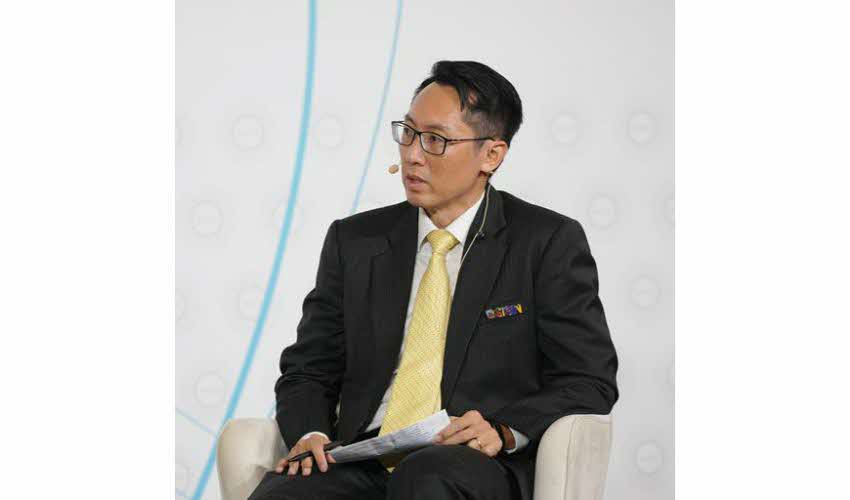
Mr Kai Ngian, Co-Head of Origination & Structuring, Clifford Capital, emphasised that cooperation between governments (G2G) will be crucial to realising the completion of the ASEAN grid connections. Mr Kai also highlighted how Energy Transmission Mechanism (ETM) can promote an innovative culture but cautioned that there are risks involved with ETM, such as its reliance on blended financing.
The panel ended with each panellist providing a word or phrase that is key to fostering green financing. Mr Krebs provided “Get it done” (to be willing to do the necessary steps). Mr Tonello offered “Connectivity” (to reiterate the importance of multilateral connections). Mr Raj said, “Persistence” (remaining steadfast in the journey towards a decarbonised future). Mr Thiru provided “Collaboration” (working together). Ms Gaboury offered “Innovation” (in changing the way we usually do things). Mr Kai said “Transition” (changing while bringing all along). Ms Ashton concluded with “Legacy” (to have steps that will provide a legacy for future generations to follow).
China’s efforts in decarbonisation and the importance of green financing for energy transition
Separately, Mr Li Junfeng, President, Chinese Renewable Energy Industry Association, presented the large-scale wind, solar and nuclear solutions that China is developing. This will reap zero supply costs, address pollution issues and develop the economy. Mr Li highlighted that support from bilateral and multi-lateral financing from financial institutions such as the World Bank and ADB will be necessary to support this energy transition journey for generations to come.
Follow us on Twitter (@SIEW_sg) to get the latest #SIEW2022 updates throughout the day!